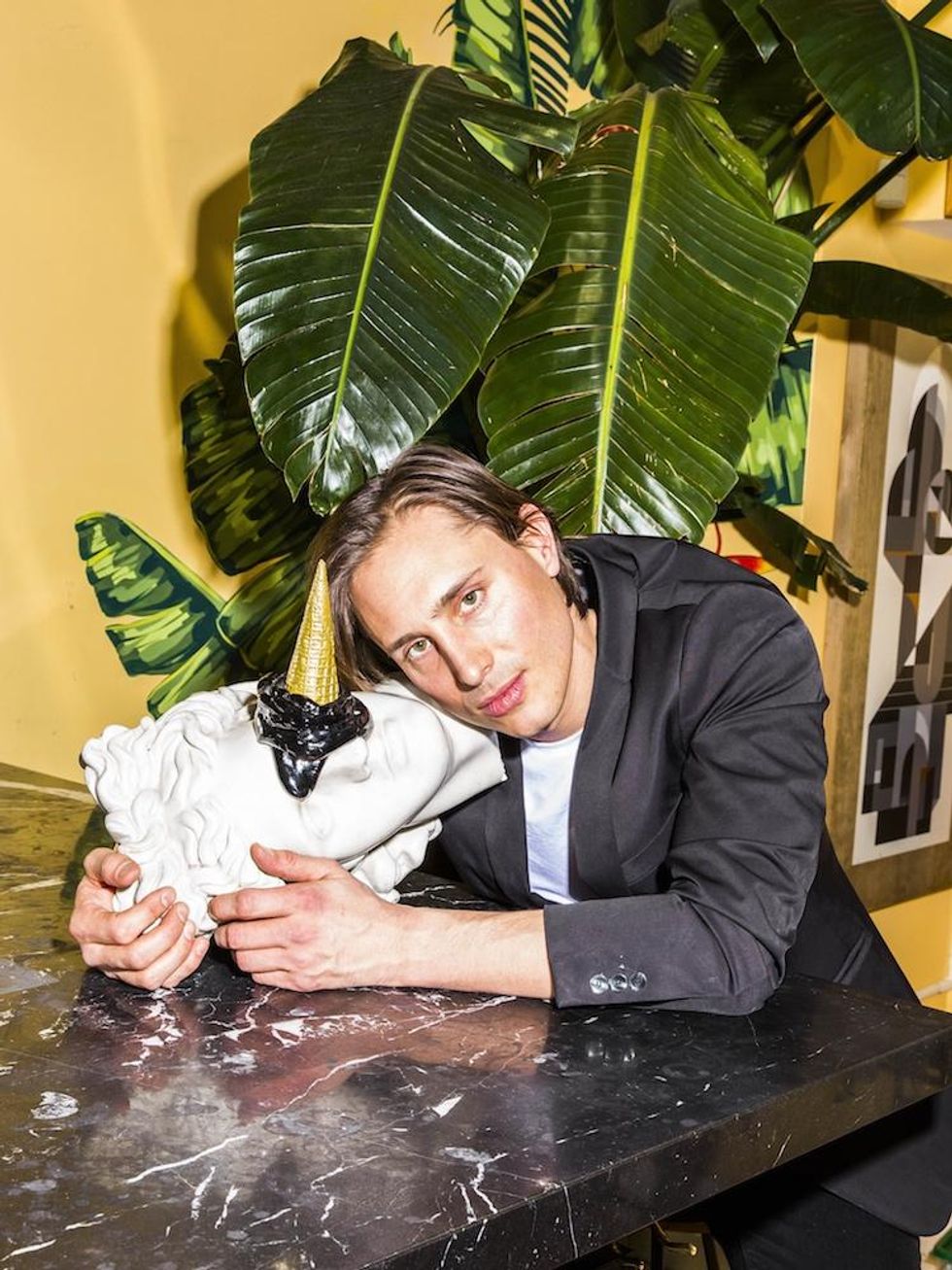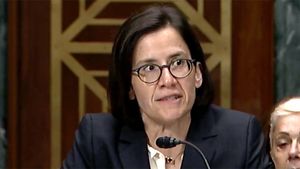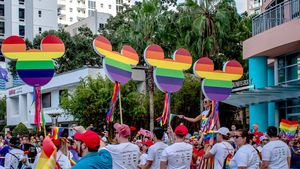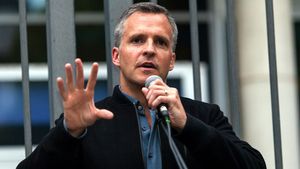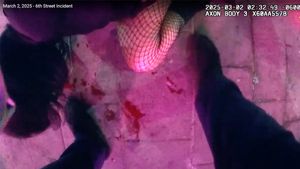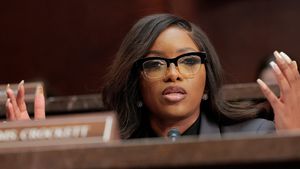When Milan Kelez was 17, he was painting the sides of buildings in South Beach, Miami. It was a modest job for the young dreamer from Peru, who was stoked about living in the United States but, without a Green Card or student visa, could only do manual labor. The gig is a blip in the life of a steadfast tastemaker whose various pursuits -- from art direction to modeling -- have taken him around the globe. And yet it forecast what Kelez is doing today: running the Peruvian hot spot Baby Brasa in Manhattan's West Village and spearheading its art collective, The New Allen, for which he arranges mural paintings on buildings across the city.
"I always had street art on my mind," says Kelez, now 33. "I was a fan of Banksy and I thought it was hilarious how there could be really good art on the streets, and not just in museums."
Related | 20 Queer Illustrators You Should Be Following on Instagram
Growing up, Kelez was also a fan of American pop culture, "from Saved by the Bell to Broadway," he says. He split his time between the city of Lima and the coastal town of Paracas, with his father, a pilot, and his mother, the face of a workout program ("like Suzanne Somers," he quips). Whenever possible, he'd fly with his dad on short trips to the States, which instilled in him the lingering itch of a nomad. "I felt there was a lot more freedom in being who you are in the U.S.," says Kelez, whose arms are comfortably outstretched in a booth on Baby Brasa's second level -- like he's at home. "I was a bit of a feminine boy, and I found everyone to be more friendly here. In Peru, I had issues with people calling me a maricon [or f****t], because there it's so machista, and I loved fashion and didn't play soccer."
It was around the time of the painting job that Kelez had made the leap to live in Miami with an aunt, a lesbian through whom he gained exposure to queer culture. Soon, the block-jawed, sandy-haired "feminine boy" caught the attention of a scout for a modeling agency, and when he saw how much he could make in a month for commercial and print work, he put down the paint bucket. The agency sent him to Paris and Milan, where he walked runways for Gianfranco Ferre and Missoni. He dropped out of school, secured a model visa, and began a flirtation with New York, where he'd take brief detours and dabble in nightlife. He fell in platonic love with his straight filmmaker friend Patrick, and the pair spent four years collaborating on projects, one of which took them from New York to Los Angeles and netted them some film fest trophies.
All the while, Kelez was "modeling and surviving -- one job here, one job there." By 24, he was living in Hollywood with Patrick, and took his first spin as an art director, working with a production designer on commercials for Toyota and McDonald's. This led Kelez to join the creative team of director Joseph Kahn, the music video giant behind clips for Janet Jackson, Britney Spears, and Taylor Swift. For Kahn, Kelez worked on set for Katy Perry's "Waking Up In Vegas" (which took him to Vegas) and Lady Gaga's "LoveGame," which required the recreation of a New York subway in an L.A. warehouse. "We dressed all those trains," he says. "We brought the trains to set. The box with the cop inside? We built all that."
But Kelez was far from settled. After a falling-out with Patrick, he found Miami calling him back, and he connected with the fashion photographer Alexander Neumann. Bonding with Neumann over their common Peruvian roots, Kelez became the photographer's assistant, another powerful partnership that would last a few years and lead to a collaboration with Neumann's mentor, Mario Testino.
Testino, also from Peru, hired Kelez to work on a watch campaign starring Tiger Woods. Another job involved returning to Lima, where in 2012, Testino founded the Mate Museum, a cultural center devoted to getting Peruvian artists global attention. Again, Kelez was part of the beehive buzzing around the photographer, aiding with the communications and commercial branding of Mate. "It spiked my interest in art, but also helped me develop a marketing mind," says Kelez. "The most fun was developing the product, and that's something I do with the artists I work with now -- transferring their creations onto plates, matches, candles."
Kelez's road back to New York is linked to his longtime pal Franco Noriega, a model, chef, musician, and fellow entrepreneur who, in 2016, opened Baby Brasa's first location on Allen Street on the Lower East Side. Revived by a sabbatical that involved lots of yoga and veganism, Kelez first approached Baby Brasa as a friend, until he realized he could help Noriega beautify his exterior. "I looked around and was like, 'This place looks like shit,'" Kelez says. Allen Street was rife with graffiti, and after deciding to paint the door of Baby Brasa's inaugural site, Kelez and Noriega teamed to revamp all its surroundings. Wall by wall, gate by gate, they commissioned artists to spruce up Allen Street, splitting the cost and eventually becoming partners on The New Allen, an art initiative born from a restaurant that evokes Peruvian pollerias and swears by responsibly sourced food. "That's when we had the idea to work together on a new restaurant," Kelez says.

Eleven months ago, Baby Brasa's second location opened in the West Village, with Kelez and Noriega as co-owners. Its Seventh Avenue address -- a short strut from Stonewall and Duplex -- has made gay customers part of its diverse clientele, which also includes Latin New Yorkers who flock in for salsa night. As its popularity has grown, so, too, has The New Allen. Kelez has now partnered with artists on more than 40 murals in New York City. His collaborators have included designer Nicola Formichetti, a fan of the original restaurant who couldn't wait to get involved; Baron Von Fancy, whose i feel you baby mural adorns a wall that hugs the West Village site; and Swedish artist Carolina Falkholt, who, last fall, caused a citywide stir when Kelez commissioned her to paint a four-story penis on a wall on Broome Street.
"She's a feminist artist," Kelez says, "and most of her work is based on vaginas. She did a mural for us near the Manhattan Bridge that was inspired by a vagina, but very abstract. Afterward, we were celebrating, and she said, 'I've been painting vaginas for too long. I feel like we need a dick.' " Cut to the morning of the unveiling of Falkholt's finished product, and a giant, pink-and-red, rock-hard phallus stood towering near the fire escapes of a residential building. Having expected more abstraction, but ending up with what the hustling artist dubbed No Time 4 Ball$$, Kelez says he was "literally in shock," and soon he was answering calls from the police and The New York Times.
"It really started up a conversation," Kelez says, "especially with all the accusations of sexual abuse going around. It was as if it made you look at a dick and think it could also be a weapon, and it got people talking about gender equality. But that's what made it a successful mural. There was anger from a few people from the community, and I totally understand that, and we were fine with covering it up. But now so many people know what The New Allen is, and my purpose is to give artists walls where they can express themselves."
On the interior walls of Baby Brasa itself are more examples of artistic expression, from small Peruvian mosaics made of corn to a giant, pink neon sign that reads baby in script font. And Kelez and Noriega are already planning a third location in Hell's Kitchen, where the curator, still dreaming, will apply more of his broadening creative vision.
"I've done a few different things throughout my life," Kelez says, "but I think it all comes together. The food, the nightlife, the entertainment, the hospitality, the street art-it's all a production in the end."
